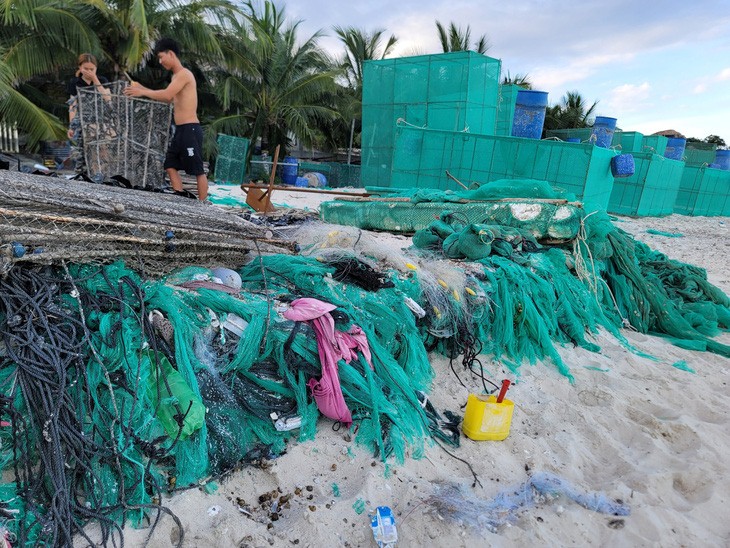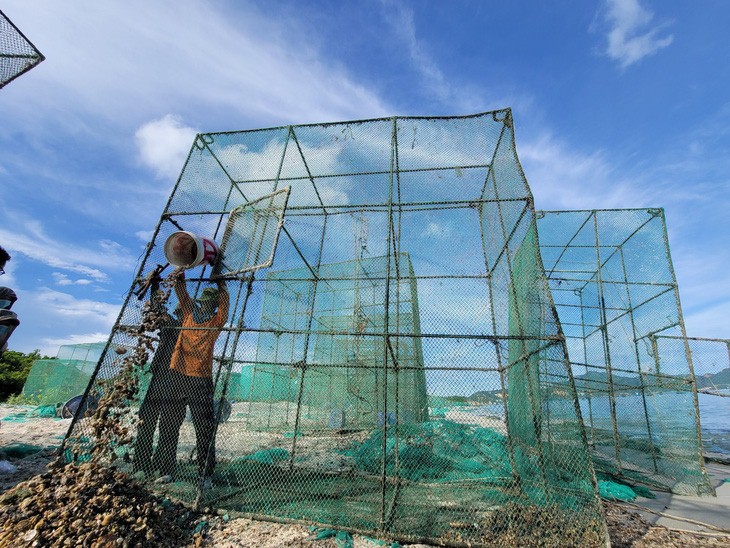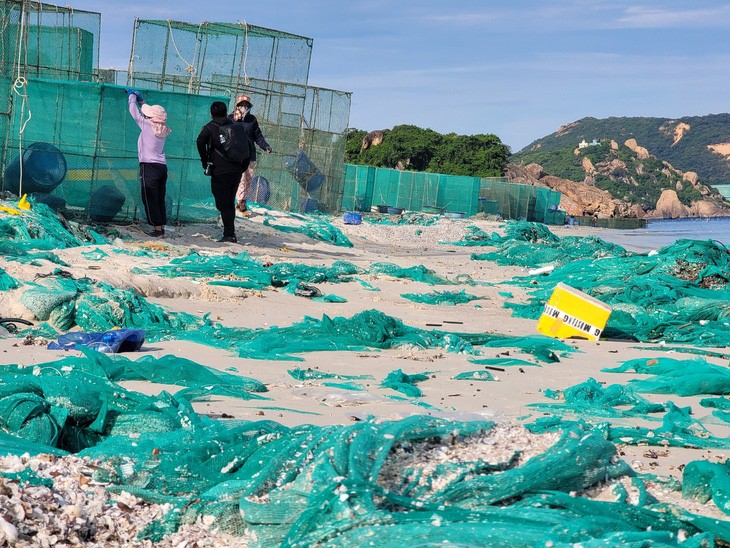A beach in Cam Ranh City under Khanh Hoa Province in south-central Vietnam has been polluted as rubbish from lobster farming has covered it over the past three years.
Thousands of lobster cages are seen on the two-kilometer-long beach, together with ragged nets, seashells, and dead fish. The area has given off a foul odor.
Residents of Binh Lap Village in Cam Lap Commune, Cam Ranh City, where the beach is situated, said after each lobster farming season, farmers brought their cages to the beach for cleaning, specifically some 50-100 lobster cages per day, leaving a huge volume of garbage there.
The garbage has also drifted out to sea, causing environmental pollution.
Nguyen Thi Van, 49, residing in Binh Lap Village, said the beach used to be beautiful with white sand and clean water.
However, it has become a landfill.
“Residents in the village used to swim there as the seawater was cool and clean. However, since the beach is full of trash, the residents have no longer bathed there as the seawater has been polluted. Some people have even reported skin problems when swimming there," Van added.
“Although the residents have repeatedly complained to local authorities, the situation has yet to improve.”
|
|
| Most seashells are dumped at the beach, causing an unpleasant smell. Photo: Tran Huong / Tuoi Tre |
Those cleaning the lobster cages said that they were hired to do the job for VND300,000 (US$12.3) apiece. Cage owners would collect the unusable nets for sale.
However, residents of Binh Lap Village denied the collection of the unusable nets.
Le Ngoc Thach, chairman of the People’s Committee of Cam Ranh City, on Saturday admitted local lobster farmers’ low awareness of environmental protection.
The city has called on local residents to protect the environment for years and asked Cam Lap Commune to cope with the issue.
If the job is beyond the commune’s capability, it should inform the city so that the latter could seek other agencies’ support, Thach added.
|
|
| Thousands of lobster cages are put along the beach. Unusable nets and seashells are scattered across the beach. Photo: Tran Huong / Tuoi Tre |
In the long term, Cam Ranh City is developing a plan to deal with the issue.
It will review the number of lobster cages, arrange farming areas, and impose heavy sanctions on those failing to farm lobsters in these areas to protect the marine environment.
“The city has just piloted some hi-tech lobster cages and has advised lobster farmers to shift from traditional farming methods to the HDPE [high density polyethylene] cages to improve economic benefits while protecting the surrounding environment and landscapes,” Thach added.
Like us on Facebook or follow us on Twitter to get the latest news about Vietnam!

























































